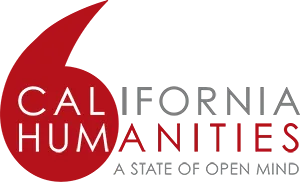Tools of the Trade: Virtual Programs, Real Conversations
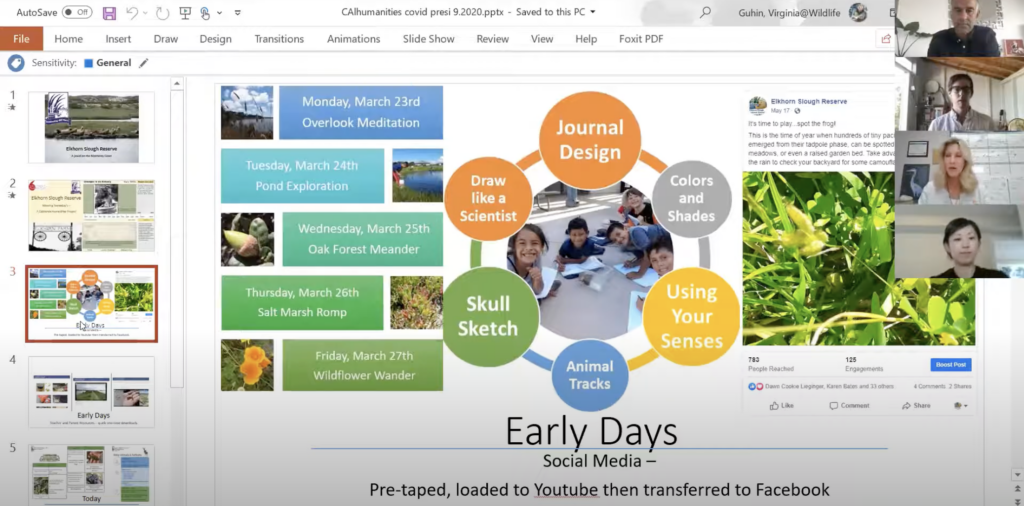
Recent California Humanities grantees The World According to Sound, Inlandia Institute, Elkhorn Slough, SDFutures Collective, and Oakland Asian Cultural Center share strategies to engage new audiences with online humanities programs.
Tools of the Trade: Working with Humanities Advisors: Who, What, Why
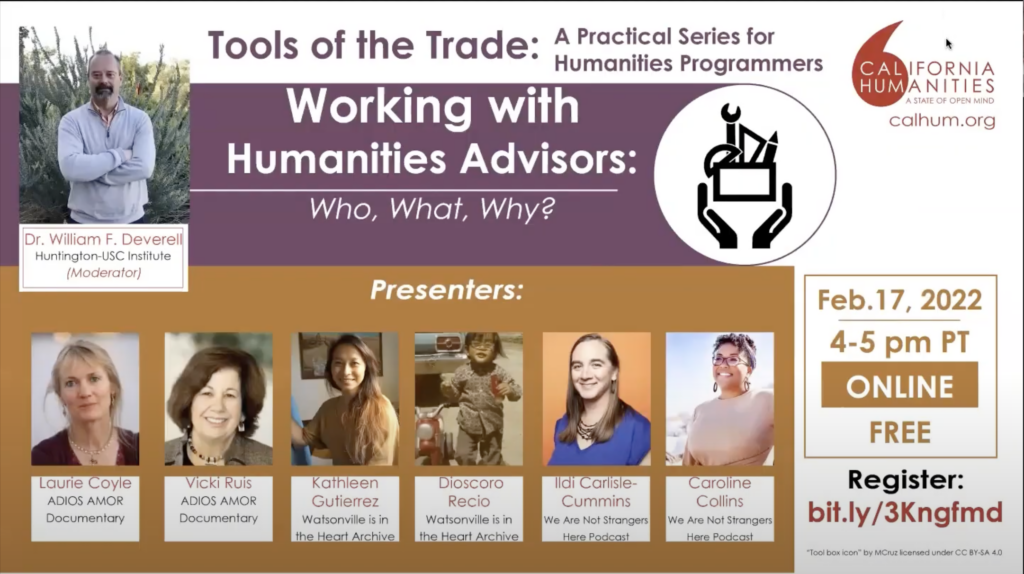
Many California Humanities grants require or encourage involvement of a humanities advisor. How does the involvement of a humanities advisor benefit a project? What makes for effective collaboration? Hear three pairs of project directors and humanities advisors share their experiences.
Tools of the Trade: All Welcome! Best Practices for Increasing Accessibility
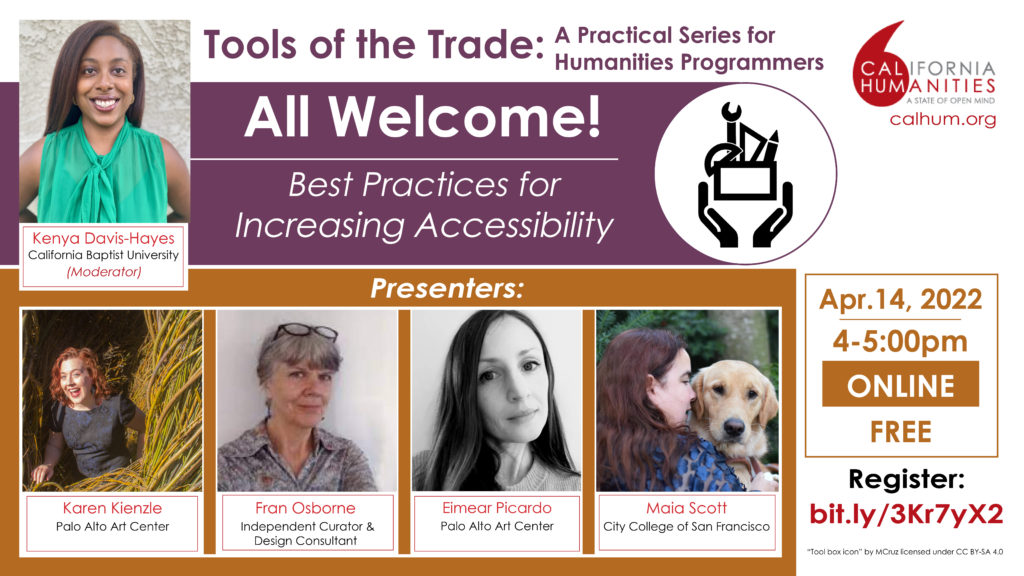
Explore how we can make public humanities programs more accessible to people of all abilities, through a conversation with the team from The Art of Disability Culture, an exhibit and public program series organized by the Palo Alto Arts Center.
Tools of the Trade: Reaching New & Underrepresented Audiences
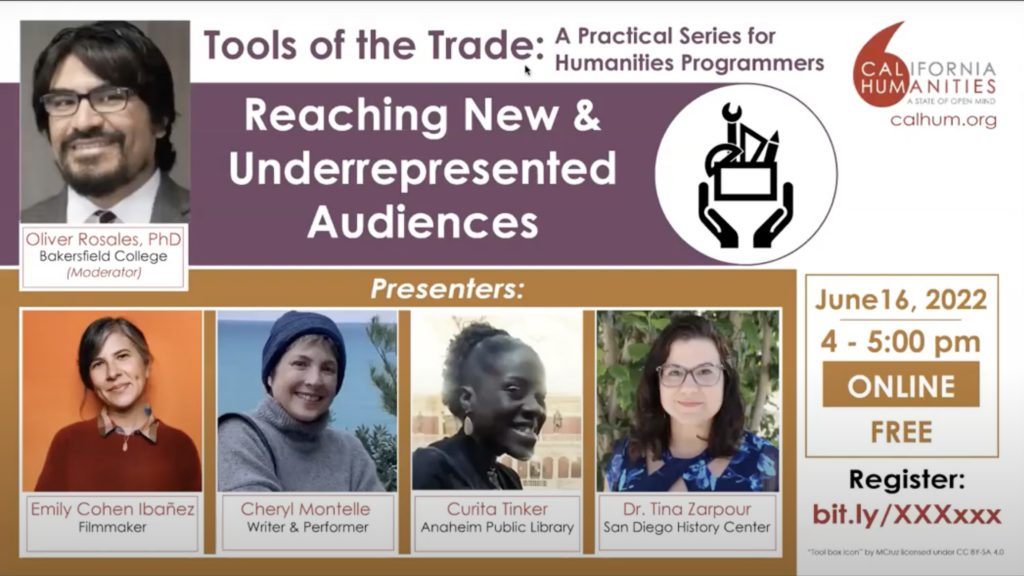
Learn how recent California Humanities grantees are successfully engaging their new and returning audiences with humanities programs. Hear their takeaways from experimenting with a range of outreach and engagement strategies.
Tools of the Trade: Programming in a Pandemic: Options for Physically Distanced Programming
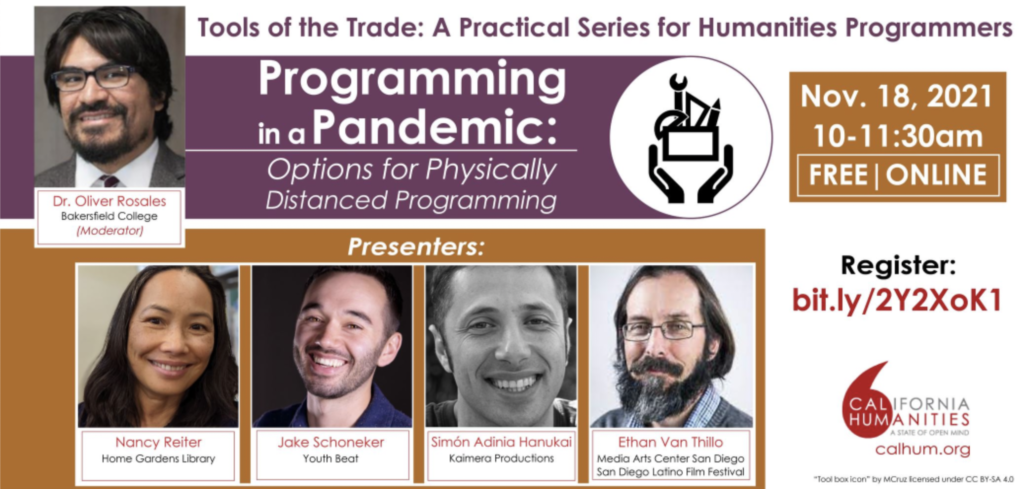
Learn how recent California Humanities grantees Youth Beat, SPACES: Oakland, Home Gardens Library, and Little Saigon Mobile Museum are successfully engaging their audiences with physically distanced humanities programs. Hear their takeaways from experimenting with a range of in-person formats beyond the virtual realm.
Tools of the Trade: Increasing Your Visibility
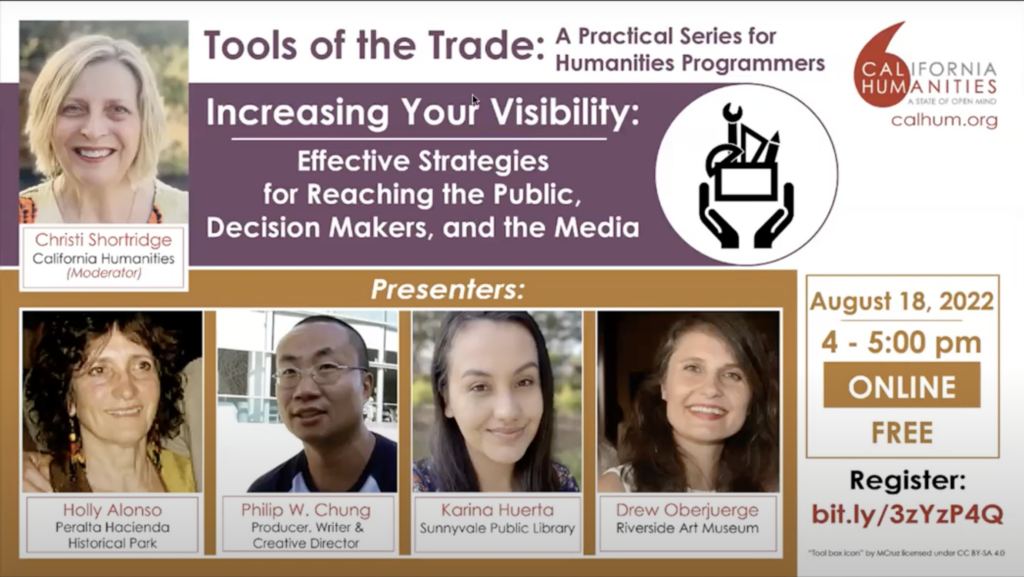
Explore ways to raise the visibility and impact of public humanities programs, through a conversation California Humanities grantees. Hear stories from project directors who have recently garnered new relationships with the media and elected officials.
Show & Tell: What Can We Learn from Artifacts of California Elections?
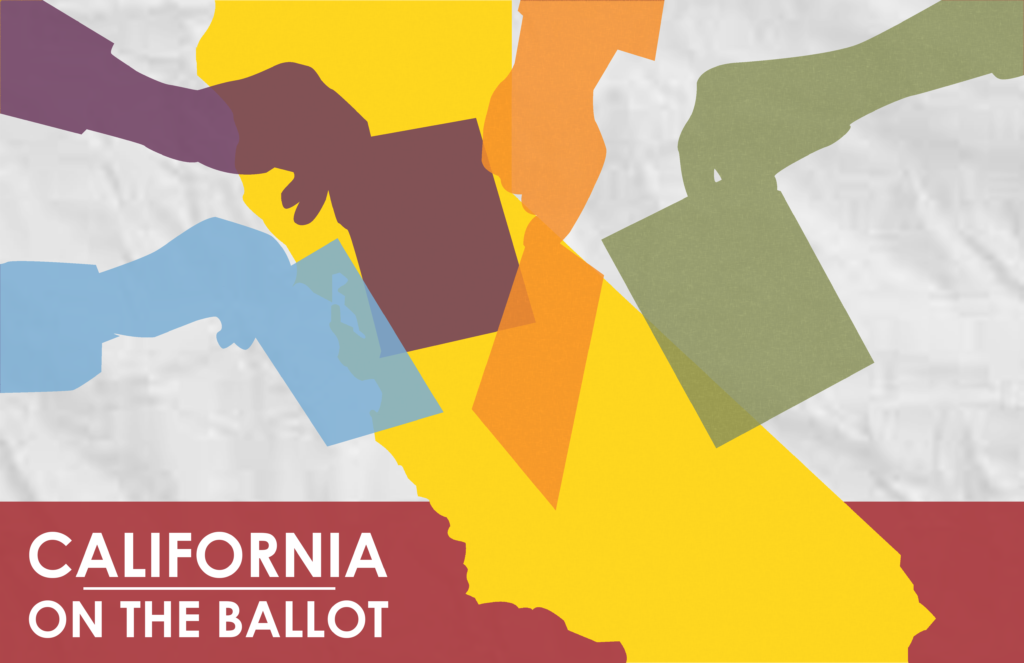
Take a trip back through California’s voting history in this show-and-tell led by historian Susan D. Anderson and archivists from across the state. Hear seldom-told stories of struggles for voting rights and representation, from Suffrage to Civil Rights and more. Recorded February 2021.
Speakers: Angela Brinskele, Frances Kaplan, Sean Dickerson, Tamara Martin, Xaviera Flores
The Electoral College: What Were the Founders Thinking?

The Electoral College is an original American model, never duplicated outside of the country. Created after lively debate in the last days of the five-month long Constitutional Convention of 1787, it set forth that presidents would be selected — not by popular vote — but by electors in each state. What is its legacy today, in a more populous and mature America? Recorded January 2021.
Speakers: Sonja Diaz, Karthick Ramakrishnan, Mindy Romero, Dan Schnur
California on the Ballot: What’s the Deal with Direct Democracy?

From the legality of prize fighting (1914) to the definition of marriage (2000), Californians have approved 132 ballot measures, with profound and long-lasting consequences for the state. Recorded October 2020.
Speakers: Jason Cohn, Rachael Myrow, Joe Mathews, Raphael Sonenshein
California on the Ballot: Highlights from Season One

Our theme for California on the Ballot: Season One (October 2020-April 2021) is barriers to voting – what obstacles have defined the voter experience in California history? How has California worked to increase voter access? What work is left to do? We’ll talk with groups whose relationship to the ballot has a complicated history, including DACA recipients, incarcerated citizens, and Indigenous communities across California.
